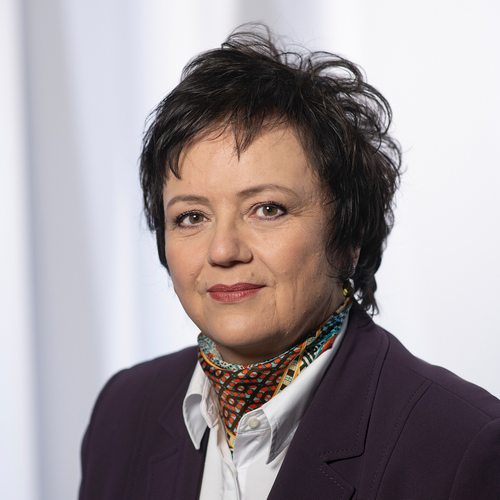
13TH INTERNATIONAL EXPERTS' CONFERENCE
ENVIROMANAGEMENT 2023
WASTE METRICS
YOU CAN'T MANAGE WHAT YOU DON'T MEASURE
OCTOBER 2 – 3, 2023
HOTEL PATRIA ****, ŠTRBSKÉ PLESO, HIGH TATRAS, SLOVAKIA
LECTURER
Dipl.-Ing. Dr. Helga Stoiber
Senior Partner
UVP Environmental Management and Engineering GmbH
Vienna
Austria
PRESENTATION
Is It Energy Recovery – Or Just Waste Disposal?
Facts and Myths Around the Infamous R 1 Formula.
Ide o energetické zhodnocovanie odpadov – alebo len o ich likvidáciu?
Fakty a mýty okolo neslávne známeho kódu činnosti R 1.
KEY WORDS
Waste incineration, energy efficiency, R1 formula, treatment, recovery, disposal
ANNOTATION
The question, if waste is subjected to recovery or to disposal, has significant influence on the waste market, for example with regard to transboundary waste shipment. Therefore, the European Waste Framework Directive (2008/98/EC) defines explicitly which waste treatment processes count as disposal (“D”) operations or as recovery (“R”) operations, respectively. Annex I and Annex II of the Directive give exhaustive lists of both types of treatment options.
When it comes to waste incineration, this treatment can either count as “D 10 Incineration on land”, or as “R 1 Use principally as a fuel or other means to generate energy”. The latter one makes clear that any waste co-incineration that generates energy counts as recovery operation, such as the co-incineration of sewage sludge or waste wood in a coal-fired power plant. With regard to waste incineration of municipal solid waste, it contains, only in the form of a footnote, the infamous R 1 formula. This formula is used to classify existing as well as new waste incineration facilities dedicated to the processing of municipal solid waste as either D 10 or R 1 operation – a formula that has been much discussed ever since it came into force, and also before.
This lecture intends to lighten the background of the R 1 formula, its history, its application and implications, and why it is not an energy efficiency formula.
LECTURER’S PROFILE
Helga Stoiber holds a degree in Chemical Engineering from the University of Technology in Vienna, Austria.
She specialized in fluidized bed technology, with a Master Thesis on continuous CO2 adsorption in a fluidized bed reactor (1993) and a PhD Thesis on the pyrolysis of plastics in an internally circulating fluidized bed reactor (1998). From May to September 1993, she had an ERASMUS scholarship at EMSE Ecole des Mines de St. Etienne, France, where she joined a research project for waste water analysis.
1999 – 2003:
Project engineer in environmental consulting 2003 – 2005: Process engineer with fluidized bed incinerator supplier AE&E Austrian Energy & Environment, including 6 months hot commissioning of a 40 MW bubbling fluidized-bed waste incinerator, as boiler operator in the control room.
2005 – 2018:
Expert for waste incineration in the Industry & Energy Department of the Austrian Environment Agency (Umweltbundesamt), including the negotiation of the BREF Waste Incineration Review Process as National Austrian Expert in the Sevilla Process.
Since 2018:
Self-employed as consulting engineer and Senior Partner with UVP Environmental Management and Engineering GmbH.
ORGANIZATION’S PROFILE
UVP Environmental Management and Engineering GmbH is an environmental consulting and planning company located in Vienna, with additional offices in the provinces of Upper Austria and Carinthia. UVP’s engineers have more than 30 years of experience in international projects in the fields of Civil Engineering, Water Management, Process Engineering, Waste Management and Environmental Technology.
The main focus of the company is on landfill remediation and identification of contaminated former industrial sites, as well as on thermal treatment plants for waste, residues and biomass, where UVP covers the entire project cycle from concept design, pre-feasibility studies, feasibility studies, environmental impact assessment, permitting procedures, basic engineering, specification and procurement of installation components, start-up and commissioning, performance monitoring to capacity building measures (trainings, workshops) for operational staff, competent authorities, and others.

